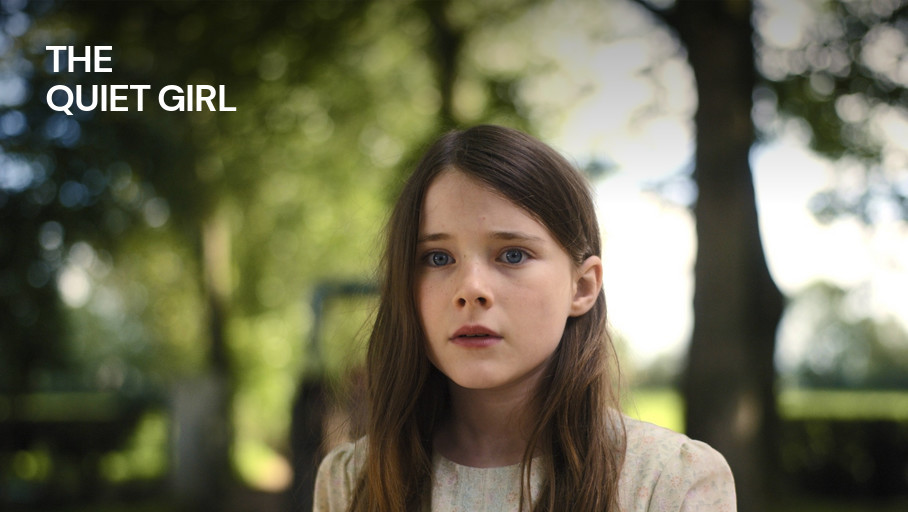
For a deeper exploration of emotional deprivation and long-standing abandonment wounds, see our Emotional Orphan Archetype guide.
(*spoiler alert*)
I absolutely loved watching The Quiet Girl- I’ve watched it multiple times already. The Quiet Girl (2022), a delicate, introspective Irish film, invites us into the life of Cáit, a shy, withdrawn 9-year-old girl navigating the emotional challenges of an unloving home and the discovery of an unexpected, healing connection. At first glance, it might seem like a simple coming-of-age story, but through the lens of archetypal psychology, particularly Carl Jung's framework, we begin to see how Cáit’s journey embodies the profound and universal themes of the "Orphan" archetype.
In archetypal psychology, the Orphan is not just about literal orphanhood, but about feeling disconnected or abandoned by society, parents or other family, or even parts of ourselves. The Orphan represents the experience of feeling lost, isolated, or unloved. For Cáit, this theme resonates deeply.
Cáit and the Orphan Archetype
Cáit’s home life is marked by emotional neglect. Her parents are emotionally distant, her father is harsh and withdrawn, and her mother is physically and mentally absent. In the world of the Orphan archetype, this is the stage where the child feels an existential abandonment. This sense of separation is often painful, and for many, it can shape a lifetime of searching for belonging.
The Journey Toward Healing
When Cáit is sent to live with her extended relatives for the summer, the narrative takes an unexpected turn. The unfamiliar environment allows her to experience a new kind of love — one that is patient, gentle, and not marred by the dysfunction of her immediate family. Here, in the nurturing environment of these two supportive figures, Cáit begins to unfold in small but significant ways.
From a Jungian perspective, this is where the Orphan’s journey begins to shift into the next stage: the search for the "Mother" archetype. While Cáit’s biological mother fails to fulfill this need, her extended relatives represent symbolic Mother and Father figures who both offer care and wisdom. This maternal and paternal energy is not perfect, but it is enough to encourage Cáit’s transformation.
Jung suggested that the "Mother" archetype can manifest in many forms, and here, it appears as a loving presence that offers the child a sense of security and emotional grounding. It’s in this space of relative safety that Cáit begins to connect with herself and others, slowly reclaiming the parts of herself that felt lost.
The Shadow and the Self
In Jungian psychology, the "Shadow" refers to the parts of ourselves that we suppress or ignore, often because they are painful or undesirable. For Cáit, much of her Shadow involves her feelings of unworthiness and her struggle to believe she is deserving of love. Throughout the film, we witness her tentative exploration of these suppressed emotions — from her awkwardness in accepting affection to the vulnerability she shows when she begins to trust her extended relatives.
By the end of the film, we see Cáit begin to confront her Shadow and, in doing so, reclaim the pieces of herself she had long been disconnected from. This is a powerful part of the Orphan archetype’s journey: the realization that, while abandonment and isolation are real experiences, they do not define who we are. Cáit’s process of confronting her past and embracing a new kind of love mirrors the individuation process, where one accepts and integrates the full spectrum of the self — the light and the dark — to heal.
A New Belonging
The beauty of The Quiet Girl is that, in the end, Cáit doesn’t just find love in her nurturing relatives; she finds a new sense of belonging in herself. The Orphan’s journey is ultimately one of self-discovery — of realizing that while we may feel abandoned at times, we also have the ability to heal and create meaningful connections.
Jung often said that healing comes not from escaping pain, but from confronting it with an open heart. Cáit’s quiet, reflective nature throughout the film speaks to this process. She doesn’t need to scream her pain to the world — her silence is an active, contemplative space where she can begin to piece together who she truly is, beyond the neglect and pain of her early years.
In the end, The Quiet Girl shows us that healing doesn’t always happen in grand gestures or dramatic moments. Sometimes, it’s in the quiet spaces — the soft moments of kindness and connection — that allow us to find our way back to ourselves.
Conclusion
Cáit’s journey through the lens of the Orphan archetype is one of profound psychological depth. Through the lens of Jungian psychology, we see that the Orphan’s struggle is not just about physical abandonment, but about emotional separation and the painful process of reclaiming parts of the self that have been lost. The Quiet Girl delicately explores this theme and reminds us that, even in our most isolated and fragmented states, there is hope for transformation, healing, and a return to wholeness. And sometimes, it’s in the quietest moments — the ones where we feel most alone — that we begin the journey toward the most profound connection of all: the one with ourselves.
____________________________________
Rebecca Steele & Smart Therapy™
Meet Rebecca Steele: Registered Social Worker, Psychotherapist— She is a Waterloo therapist, offering trauma therapy and counselling services in Kitchener-Waterloo, and all across Ontario virtually through telehealth sessions. With over a decade of experience as a seasoned Depth Therapist, she excels at delivering personalized 1:1 individual therapy sessions. Her expertise extends to guiding adults through their emotional landscape, tackling everything from grief, depression, and trauma to the complexities of life changes, boundary concerns, low self-esteem, relationship stress, and many types of anxieties—eg. general anxiety, panic attacks, social anxiety, phobias, anxious attachment styles, and OCD. She navigates these areas therapeutically from a Depth Therapy lens: incorporating symbolic, archetypal, Jungian, depth, unconscious, and art theory perspectives. Ready to dive into the world of compassionate depth therapy? To explore further details about Rebecca's online counselling services in Kitchener-Waterloo, please click here!





